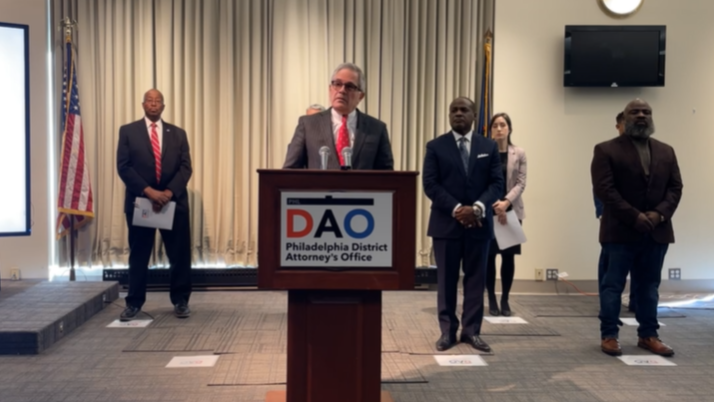
PHILADELPHIA (KYW Newsradio) — The District Attorney's Office gathered on Tuesday to outline one of its top priorities of 2025: addressing juvenile justice.
Starting this week, Philadelphia police will stop arresting juveniles accused of first-time, low-level offenses, and will instead send them to a diversion program.
“To the extent people that we would put into diversion after arrest, go into diversion before arrest, and to the extent it is equally successful, that's a great thing, and we support that,” said District Attorney Larry Krasner.
DAO officials say their aim is to hold young people who commit crimes accountable, while expanding those juvenile diversion programs, as well as victim restoration and community safety. Assistant District Attorney Jordan King says diversion is an opportunity for youth to avoid a juvenile record and the collateral consequences that come from system involvement.
“This alternative to prosecution is not only cheaper for the taxpayer, it also is a system that is an option that the system can use to alleviate strains on other aspects of the system,” King said.
He says youth with firearms, carjacking or sex offenses are not eligible for the program. Some in attendance spoke about the desire to see an end to the direct filing of juveniles to adult court.
“Maybe we should be pushing for more legislation … to change legislation so that we can get rid of this whole concept of direct files,” said Rev. Dr. Damon B. Jones, senior pastor at Bible Way Baptist Church in the city’s Parkside section. “I don't think we should ever have juveniles in an adult facility.”
Donnell Drinks, a community advocate and former juvenile lifer, also said he would like to see direct filing come to an end.
“Operating from the knowledge no child is born bad, we are optimistically working towards the day there won't be any exclusion of what offenses will be considered for alternative resolution for our children,” he said.
According to Krasner, about 500 city gun cases on average per year involve youth who are dealt with differently from other juveniles in the system.
